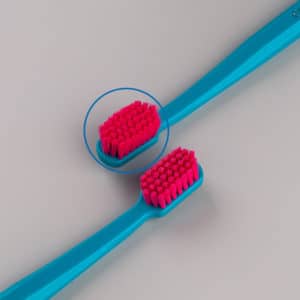Ultimate Dental Hygiene Guide for a Healthy Smile
 Maintaining good oral health is crucial for a beautiful smile and overall well-being. October is National Dental Hygiene Month, making it the perfect time to delve into the world of dental hygiene. At The Center for Implant and General Dentistry, we're committed to helping you achieve and maintain a healthy smile. This comprehensive guide will explore every facet of dental hygiene, from the basics to advanced techniques, and even tips for maintaining oral health while traveling.
Maintaining good oral health is crucial for a beautiful smile and overall well-being. October is National Dental Hygiene Month, making it the perfect time to delve into the world of dental hygiene. At The Center for Implant and General Dentistry, we're committed to helping you achieve and maintain a healthy smile. This comprehensive guide will explore every facet of dental hygiene, from the basics to advanced techniques, and even tips for maintaining oral health while traveling.
The Basics of Dental Hygiene
Understanding Dental Hygiene:
Dental hygiene is not just about bright smiles; it's about the overall health of your teeth and gums. It involves a set of practices and habits that keep your oral cavity clean and healthy.
The Role of Dental Hygienists:
Dental hygienists are your partners in oral health. They perform professional cleanings, educate patients about proper dental care, and assist dentists in various procedures.
Importance of Dental Checkups:
Regular dental checkups are your first line of defense against dental issues. Dentists can spot problems early and provide guidance on maintaining oral health.
Daily Dental Hygiene Routine
Brushing Techniques
Effective brushing involves more than just scrubbing your teeth. Use a soft-bristle toothbrush and fluoride toothpaste. Brush for two minutes, covering all tooth surfaces.
Choosing the Right Toothbrush and Toothpaste
Select a toothbrush that suits your needs. Toothpaste should contain fluoride, which strengthens enamel and prevents cavities.
The Art of Flossing
Flossing reaches the spaces between your teeth, where brushes can't reach. Make it a daily habit to remove food particles and plaque.
Importance of Tongue Cleaning
Don't forget your tongue! A quick scrape or brush can eliminate bacteria and debris, keeping your breath fresh.
Nutrition and Dental Health
Foods That Promote Dental Health
A balanced diet rich in fruits, vegetables, lean proteins, and dairy products is essential. Crunchy foods like apples and carrots can naturally clean teeth.
Foods to Limit or Avoid
Sugary and acidic foods and beverages can erode enamel and promote tooth decay. Limit their consumption for better oral health.
 Importance of Hydration
Importance of Hydration
Drinking water helps maintain saliva production, which washes away food particles and bacteria, reducing the risk of cavities.
Dental Hygiene for Children
Establishing Good Habits Early
Start teaching kids about oral hygiene from a young age. Make brushing and flossing fun to establish lifelong habits.
Child-Friendly Dental Products
Use child-sized toothbrushes and mild-flavored toothpaste. Regular dental visits help monitor development and address issues early.
Visiting the Dentist with Kids
Choose a pediatric dentist who specializes in children's oral health. Regular visits help prevent dental anxiety and ensure healthy development.
Common Dental Hygiene Issues
Gum Disease (Gingivitis and Periodontitis)
Gum disease can lead to serious problems. Early signs include bleeding gums, bad breath, and gum recession. Regular dental checkups can catch and treat it early.
Tooth Decay (Cavities)
Cavities are common but preventable. Brushing, flossing, and limiting sugary foods are essential for cavity prevention.
Bad Breath (Halitosis)
Persistent bad breath may signal underlying dental issues or health conditions. Maintain good oral hygiene and consult your dentist if it persists.
Teeth Sensitivity
Sensitive teeth can result from worn enamel or exposed roots. Special toothpaste and treatments can alleviate sensitivity.
Advanced Dental Hygiene Tips
Using Mouthwash Effectively
Mouthwash complements your routine but doesn't replace brushing and flossing. Choose an antibacterial or fluoride mouthwash and follow instructions.
Interdental Brushes and Water Flossers
Interdental brushes and water flossers reach tight spaces, enhancing cleaning. Consider these tools for a thorough routine.
The Role of Fluoride
Fluoride strengthens tooth enamel, making it more resistant to decay. It's found in toothpaste and can be applied professionally.
Preventing Teeth Grinding (Bruxism)
Bruxism can damage teeth. Nightguards, stress management, and dental advice can help mitigate grinding.
Orthodontics and Dental Hygiene
Braces and Oral Health
Maintaining oral hygiene with braces requires extra effort. Use special brushes and tools to clean around brackets and wires.
Invisalign and Hygiene
Invisalign aligners are removable, but cleanliness is still vital. Clean your aligners and teeth before reinserting them.
Retainers and Maintenance
After orthodontic treatment, retainers are crucial to maintaining your new smile. Clean them regularly and follow your orthodontist's instructions.
 Dental Hygiene and Overall Health
Dental Hygiene and Overall Health
The Mouth-Body Connection
Oral health can affect your overall well-being. Infections or inflammation in the mouth can contribute to systemic health issues.
Diabetes and Oral Health
Diabetes can increase the risk of gum disease. Managing blood sugar levels and excellent oral hygiene are key.
Heart Disease and Oral Health
Oral inflammation may contribute to heart disease. Maintaining oral health may reduce this risk.
Oral Hygiene Products and Technologies
Electric Toothbrushes
Electric toothbrushes can provide more consistent brushing. Choose one with a rotating or oscillating head for optimal cleaning.
Smart Toothbrushes and Apps
Some toothbrushes connect to apps, offering real-time feedback on your brushing habits. Consider using technology to improve your oral care routine.
Teeth Whitening Options
If you desire a brighter smile, consult your dentist for safe teeth whitening options. Avoid over-the-counter products that may damage enamel.
Dental Hygiene FAQs
How often should I see the dentist?
Most people should visit their dentist every six months for checkups and cleanings. Your dentist can recommend a different schedule if needed.
What is the correct way to brush my teeth?
Hold your toothbrush at a 45-degree angle, brush for two minutes, and use gentle, circular motions. Remember to brush your tongue!
Are there natural remedies for bad breath?
Some natural remedies include chewing sugar-free gum, drinking plenty of water, and using mouthwash with essential oils. However, consult your dentist if bad breath persists.
Conclusion
Commit to prioritizing your oral health in honor of National Dental Hygiene Month. Remember the basics, adopt advanced techniques, and stay informed about the latest advancements in dental care. Your smile is worth it, and so is your overall health. Let's ensure your teeth and gums remain healthy for a lifetime. Contact us today!
Ready to find out more?
Contact us for more information!
